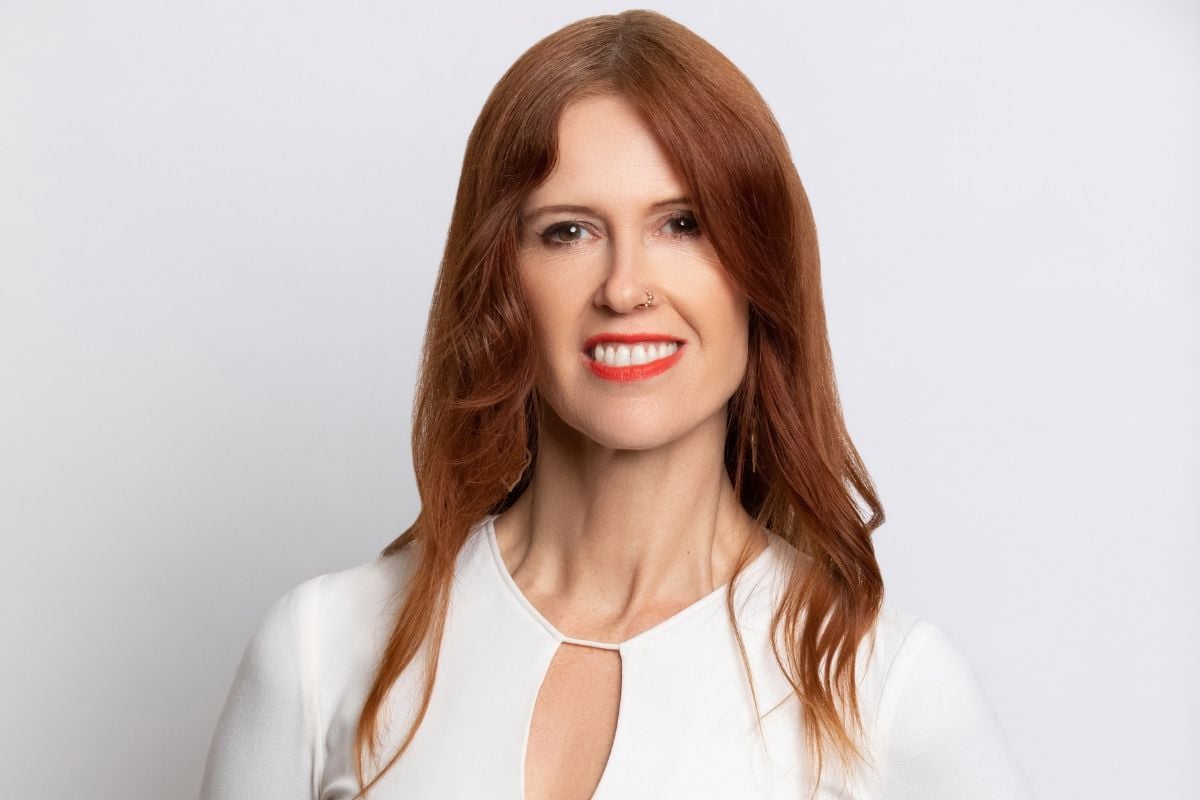There’s something about Dr Catriona Wallace that makes her seem like more like a superhero than a businesswoman. Her brilliant red hair makes her stand out in a crowd and her impeccable clothing and make-up leaves you wondering if she’s just stepped off a catwalk.
Meanwhile, her inviting smile radiates warmth and confidence, immediately putting you at ease. But, what is most engaging about the charismatic entrepreneur is her sheer determination, drive and passion. There’s no doubt that when she sets her mind to something, she makes it happen.
The Australian businesswoman is not only the Founder of artificial intelligence fintech start-up Flamingo Ai, but is also one of the very few female CEOs running ASX-listed companies.
In fact, Flamingo Ai is the second female-led (CEO and Chair) business ever to list on the ASX. “I don’t deal with many women,” Wallace laments.
“There are very few women who are leading ASX companies, and there are very few who are in the investment community that invest in companies.”
Wallace believes the shortage of women in leadership is something that needs to be addressed by the business world. She points out that women working their way up through the ranks often leave large companies between the ages of 30 and 40.
“Perhaps in those years, they choose to start a family or have a career change,” she says. “We see a significant number of women drop off who could potentially make it into leadership roles in ASX-listed companies.”
“We see a significant number of women drop off who potentially could make it into leadership roles in ASX-listed companies,” – Dr Catriona Wallace
While there’s no easy solution to the problem, Wallace believes that with the right mentoring, coaching and guidance, many could be encouraged to stay in the corporate world and eventually break through the so-called glass ceiling.
“I also think there needs to be more profiling of women who have made it into leadership roles and are role models,” she adds.
“Women need to see, read about, meet and experience other women who are in those leadership roles. I believe that women attract women. Women like to go and work with women, so just having that visual presence would certainly help.”
Understandably, many women choose to put their careers on hold while they turn their attention to raising a family.
Those who return to the workforce after having children often seek part-time work, which results in them taking lower positions and stepping aside to let their male counterparts ascend the corporate ladder.
However, Wallace is adamant women shouldn’t have to choose between career and family. “I believe we can have it all,” she declares.
As a mum-of-five, Wallace certainly knows a thing or two about juggling parental responsibilities with a high-flying career. Describing herself as an “un-mother”, she reveals she’s made it work by taking an unconventional approach to parenting.
“My youngest son once said to me, ‘Oh, Mum, you’re an un-mother.’ I said, ‘What is that?’ he said, ‘An un-mother is just super-loving like a mother, but you don’t actually do anything that mothers are supposed to do. You don’t make my lunch, you don’t come to the school, you don’t go on excursions, you don’t know who my teachers are.’ I said, ‘Yeah, actually, all of that is true!’” Wallace laughs.

“He said, ‘But you do show me how to work and how to be an entrepreneur, and you’ve taken me overseas, you’ve taken me into your business and I’ve learned a lot of things that mothers do when they’re working.’ I went, ‘Okay, great, as long as there is some other benefit there.’ I think this unconventional approach to parenting is necessary, and I think if you have that, indeed, you can have it all. You can be a mother and a worker in senior leadership.”
Wallace, who has a PhD in Organisational Behaviour: Human Technology Interaction, is also passionate about encouraging more women to pursue careers in technology.
In 2013, the entrepreneur founded Flamingo Ai, a machine-learning company with headquarters in Sydney and the US that provides cognitive virtual assistance for employees and customers.
She’s since become a world-renowned authority on artificial intelligence (AI), insisting it needs to be a core part of every company’s business strategy.
“It’s the fastest-growing tech sector in the world,” she says.
Concerned about the bias that will arise without diversity, Wallace is urging more women to join her in the field.
“Currently 90% of all AI-type coding is done by males, and with that comes the risk of bias, probably unconsciously, being coded into the way the algorithms work. We’ve already seen that play out in some pretty disastrous situations, where we’ve had machines and technology choosing males above females for recruitment,” she explains.
“We must get more women, and also minorities, into STEM simply so that we can avoid hard-coding society’s existing biases straight into the machines that are going to be running our lives going forward.”
Currently, AI software promises to improve efficiency and facilitate better and faster decision-making. However, in just a few years, the technology will begin taking over many of the tasks traditionally performed by humans.
“Within the next six years, 40% of the jobs in sectors such as finance, retail, hospitality and tourism will be automated by machines,” – Wallace
“Gartner predicts that, within the next two years, 1.8 million jobs will be lost as a result of AI, but 2.3 million jobs will be created. The issue is that the 1.8 million who lose their jobs will not be the 2.3 million who are taking the new jobs. It’s predicted that 90% of the jobs that are going to be automated will be those mainly done by women and minority groups.”
When you listen to Wallace speak about AI, it quickly becomes apparent that she is not only passionate about the topic, but is also extremely knowledgeable.
However, not everyone realises this when they first meet her. “I’m one of the very few females in the AI sector who’s leading a company so, often, when I’m around my counterparts, or even venture capitalists and investors, they assume that I don’t really know about AI and high tech, so I get a lot of mansplaining,” she smiles.
“Many people, for whatever reason, assume that I don’t know about technology, so they’ll start to tell me and teach me about it, and then I say to them, ‘Oh, look, I actually run a company, and we’ve built this from scratch. It’s our own proprietary technology. I have a PhD in the field,’ and then they correct themselves. Initially, they assume that I’m a lady running a company without the significant experience and substantial knowledge that I have.”
Despite having to prove herself along the way, Wallace is proud of everything she’s achieved. “Conceiving an idea of a new technology and successfully bringing that to the market, not only here in Australia but also in the US, and providing great value for our clients – that’s been amazing,” she grins.
“Competitors in our field are all the big technology giants, such as Google, Amazon, IBM and Microsoft and, so far, we’ve been able to hold our own in a highly competitive space. So I’m proud that we, as a young Australian company, have made a mark in the AI field.”







